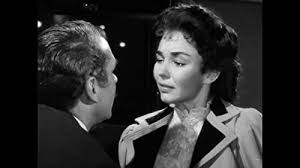The Evolution of Motivation: Unpacking Carrie's Values and Motivetions in "Sister Carrie"
Introduction
Central to Carrie's character development is her motivation, intricately woven with her evolving set of values. In this blog post, I will talk about how values impact Carrie's motivation and examine how they shape her aspirations and actions throughout the novel, by using specific examples.
Explanation of Key Terms
Values: Values represent enduring beliefs and principles that guide an individual's behavior and decision-making, shaping their goals and aspirations.
In the opening chapters, Carrie's values are rooted in the pursuit of material comfort and societal acceptance. She seeks to escape the boredom of her small-town life and believes that achieving financial stability will lead to happiness. Her value of societal acceptance is evident when she leaves her hometown to seek a better life in Chicago.
Achievement Goals: Achievement goals refer to the specific objectives or accomplishments that an individual aims to achieve, which can be driven by personal, professional, or societal expectations. It can be divided into two types: Mastery Goals and Performance goals.
Carrie's achievement goal is to become a successful actress, in the later part of this story, a dream she pursues relentlessly in Chicago. She believes that achieving fame and fortune in the entertainment industry will bring her the happiness and prosperity she longs for.
Instrumentality: Instrumentality refers to the belief that a particular action or effort will lead to a desired outcome(a higher goal than now), indicating the perceived connection between one's actions and the attainment of a goal.
Carrie firmly believes in the instrumentality of moving to Chicago and pursuing an acting career. She thinks that by taking these steps, she will escape her old undesirable life and achieve the happiness and success she desires.
Developing Interests: Suzanne Hidi's article "The Four-Phase Model of Interest Development," published in 2006, outlines a comprehensive framework for understanding the development of interest, particularly in the context of learning and education. It provides how individuals go through a process of developing and sustaining interest in a particular subject or activity. The four phases are: Trigger interest, Maintain interest, Emerge interest, and Well-developed interest.
First, when she arrives in Chicago, her chance encounter with theatrical performances and the glamour associated with them serves as a significant trigger. Her curiosity is piqued as she witnesses the vibrant theater scene, and she starts attending shows to explore this new world. Second, She actively seeks out opportunities to watch more performances and begins to understand the actress. This phase, her growing intrinsic motivation motivates her to learn about acting. She invests time and effort in honing her skills, initially as a chorus girl and later as an actress. Then, in the developing phase, she starts to see acting as a means to escape her ordinary life and achieve recognition and success. Carrie begins to envision a future where she can make a name for herself on stage. Her interest in acting becomes intertwined with her self-identity, as she sees it as a path to a better life. Last, acting became a part of her self-identity, and her interest was well supported by her career. Predictably, even if acting didn't go well at first, as it has now developed into a mature interest, it can also bring positive feelings to Carrie.
How do Carrie's values play into her motivation?
Carrie's values undergo a gradual transformation as she encounters new experiences and individuals in the novel. One example is that: When Carrie meets George Hurstwood, a wealthy and married man, her life takes an unexpected turn. Her relationship with Hurstwood exposes her to a world of luxury and comfort that she had never imagined. This experience prompts her to question her earlier values(have a "good" job and find a nice man to be married to, then get a good life like her sister)and motivations, as she begins to crave a life of riches and refinement. But this value also changed in the later part of this story, her values shift from external achievements(luxury life) to personal growth and happiness, and her actions reflect this change. She starts to question her previous pursuits again and seeks a more meaningful life.

Lovely analysis! You did a great job of explaining the values component and you provided a thorough analysis of Carries' values and how they changed over tiime.
ReplyDelete